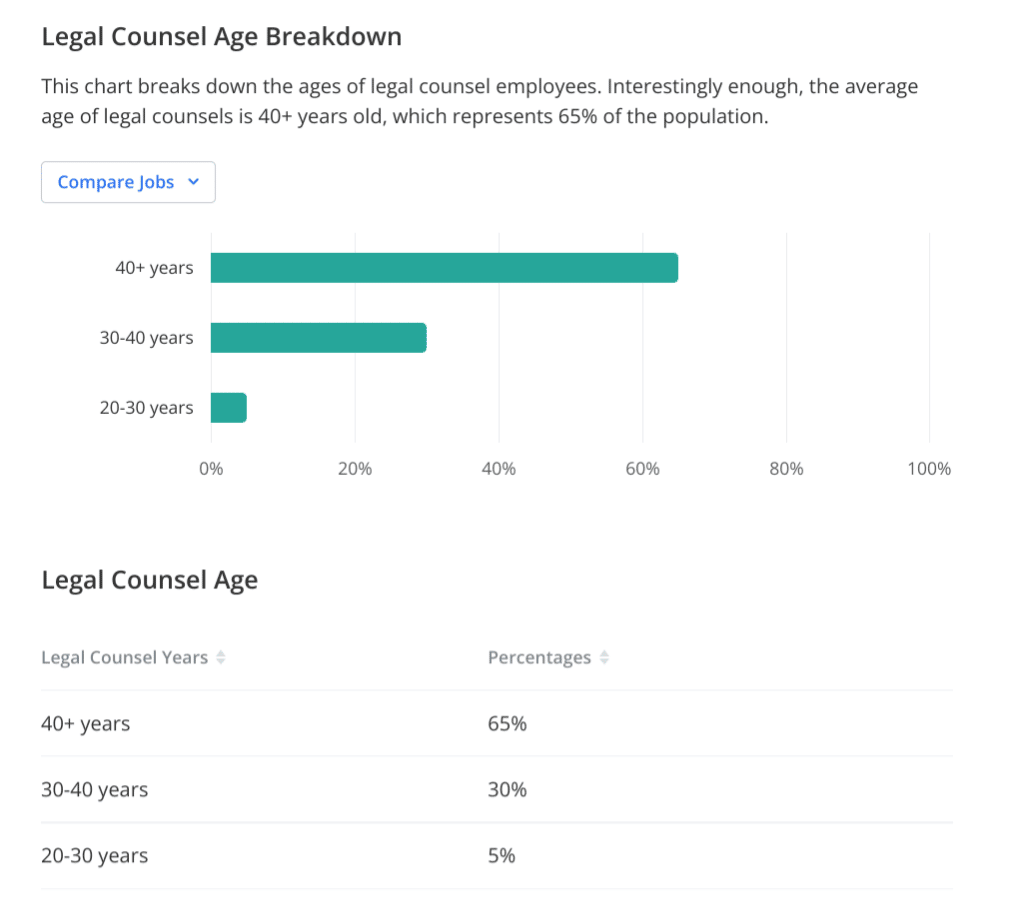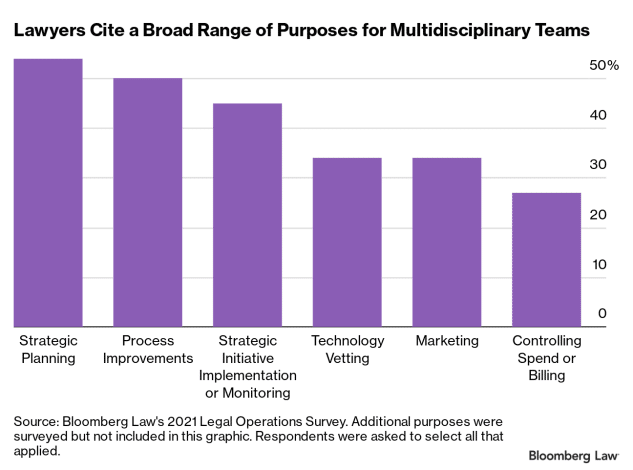Digital transformation is not a riskless endeavor. The process requires forgoing what’s tried and true to benefit from what’s better and faster. An important element in reducing some of that risk is having the right culture among your legal talent and systems to embrace the change of digital transformation and realize its potential. How do you build that culture? That’s the question we answer with key considerations for convincing stakeholders and staying accountable to your digital transformation goals.
Key Takeaways
- Each legal department requires a unique approach to digital transformation based on an honest evaluation of its current culture and demographic makeup.
- Buy-in from your stakeholders is the largest domino you need to fall to realize a digital transformation.
- A strategic roadmap will give your process structure and create chances for needed feedback.
Reflect on How Your Legal Department’s Current Culture Embraces Technology
Developing a legal department culture that is receptive to incorporating technology begins with understanding the general culture of your team. Culture is the how of your legal department and refers to a combination of behaviors and values as well as the formal and informal systems that shape them. Any effort in digital transformation will impact this culture, which makes alignment between the two critical for its success.
This issue can be especially tough for some legal departments because of the high stakes, no-room-for-failure attitude not uncommon in the practice of law. Finding ways to break down, or at the very least, be mindful of some of that stigma may help implement technology and new practices.
Related to the stigma of legal departments and technology might also be the use of resources. Does your office allocate an appropriate level of capital to effectively capture the digital transformation you want to achieve? In addition to money, this includes other efforts like time and training. The amount you Invest in digital transformation sends a strong signal to your legal department about its priority within the culture.
What Influences a Legal Department’s Culture?
Many different factors will also contribute to the nature of your legal department’s culture, making your department more or less receptive to digital transformation. Such factors may include:
- Size
- Industry
- Age
- Leadership
- Education and experience
Every legal department will require a unique approach toward building a culture that prioritizes effective digital transformations. For example, an older legal department may need more training and time to learn, while a younger demographic may be more interested in the motive behind certain technology choices as a part of the why generation.

- The average age of legal counsels is over 40, which is an important factor that affects your legal department’s culture for digital transformation.
Know the Stakeholders for Building a Digital Transformation Culture
Stakeholders are anyone with an interest in your legal department’s decisions toward digital transformations. These parties could be senior or junior GCs, paralegals, legal assistants, legal operation specialists, project managers, IT personnel, etc. The larger your legal department, the more essential your key stakeholders will be. You will need these members to accept and advocate for the culture you want to build and the digital advances you want everyone in the department to make.
On a basic level, these key stakeholders might be leaders in the various niches of your legal department (e.g., M&A, litigation, real estate, intellectual property). You may want to consider forming a strong coalition of senior and junior legal talent across a range of specialties. This diversity will help protect the interests of your digital transformation from risks like employee turnover.

- Finding stakeholders for your digital transformation culture should involve multidisciplinary teams within your legal department.
Getting Your Stakeholders to Buy into the Digital Transformation Process
Identifying the key stakeholders for building your culture of digital acceptance is only half the battle. You also need them to buy into the vision you are trying to create. Many different avenues exist for effectively doing this and will likely involve a combination of incentives that deter unwanted behavior or reward positive actions. Knowing the motivations and characteristics of your stakeholders will prove useful in how you craft incentives that propel tech advancements. Some ideas for encouraging buy-in among your stakeholders may include:
- Explaining how the tech will improve their work experience (e.g., reduce burdens or decrease time costs)
- Providing monetary incentives (e.g., bonuses for hitting certain KPIs or meeting digital transformation goals)
- Showing how the process will develop new skills and make your legal talent more marketable
Have a Strategy and Roadmap for Incorporating New Tech
Whether it’s a new CMS for your legal department’s contracts or an AI tool for eDiscovery, having a roadmap for that transformation will also help your culture. A roadmap gives your technology goals structure, which provides some protection against taking actions that will jeopardize your legal department’s identity. The other benefit of a roadmap is that it allows your team to continue taking steps forward by always having a future target. Some considerations for building your digital transformation roadmap and strategy:
- Have multiple roadmaps that reflect various timelines (e.g., monthly, quarterly, annually)
- Create small goals that will contribute directly to the larger vision
- Assign specific stakeholders to monitor and manage initiatives
A roadmap will keep your legal department accountable toward different digital goals, and starting small will build confidence in your team’s ability to execute and see results.
Share the Digital Transformation Roadmap and Create Opportunity for Comment
Creating a digital transformation roadmap will not enhance your legal department’s culture unless you share it with stakeholders and receive important feedback. You can use feedback on the roadmap to gauge priorities within your department, monitor morale, anticipate potential conflict, and mitigate other risks that could jeopardize the transformation.
Digital transformation is an unavoidable reality for the legal sector.
An important time to seek comment on a technology choice is before you commit. If stakeholders and employees feel they contributed to the decision, their willingness to embrace it should increase. Conversely, if your preferences widely diverge from your team members, it shows you have more work to do. Your choice could still be superior, but you may need to spend more time showing stakeholders the value or understanding concerns.
Exigent: An Asset in Your Legal Department’s Digital Transformation
Digital transformation can be difficult for legal departments that are always busy and pressed for time. Meeting the needs of your c-suite and other corporate departments limits your ability and time to implement the change that will ultimately improve your outputs to those benefactors. That’s why Exigent exists. We are a third-party legal service provider that leverages technology in its offering of legal operations so GCs and legal departments can focus more on strategy and leave the logistics to us.
Download our whitepaper on taking your contract management to the next level.
About the Author:
Exigent is an Alternative Legal Services Provider (ALSP) breaking industry boundaries and raising the bar for data-driven decision-making. With a powerful combination of technology, legal expertise, and business acumen, Exigent creates expert solutions that drive better legal and business outcomes for law firms and corporations.
Exigent delivers scale, expertise, and insights that generate bigger returns for CLM – Contract Lifecycle Management, Legal Spend Management, e-Billing, Due Diligence, Document Review, eDiscovery and Litigation Support, Commercial Services, Regulatory & Compliance, Outsourced Legal Administration, and Legal Tech Design.
Follow us on LinkedIn and Twitter to transform the way you do legal.
The Exigent 2022 Annual GC Survey: Breaking Free

General Counsels Reveal ‘Secret Sauce’
Download to learn:
- Several common challenges GCs faced in their transformation process and what they did about them Which priorities successful GCs handled first to achieve desired outcomes 5 Best-Practice Tip Sheets for how to “Break Free” of barriers to transformation for each strategic priority The 6 Key Traits of High-Performing GCs
















